
Some legal education history I didn't know -- a thread.
In 1950, a significant number of law schools refused to admit Black students. That year, the AALS considered a rule that to to be an AALS member school, you had to open your doors to students of all races.
In 1950, a significant number of law schools refused to admit Black students. That year, the AALS considered a rule that to to be an AALS member school, you had to open your doors to students of all races.
This was during the period of "separate but equal," before Brown v. Board. Private law schools could be segregated. And public law schools could be segregated but only if they provided an "equal" alternative. See, e.g., Sweatt v. Painter, 339 U.S. 629 (1950). 
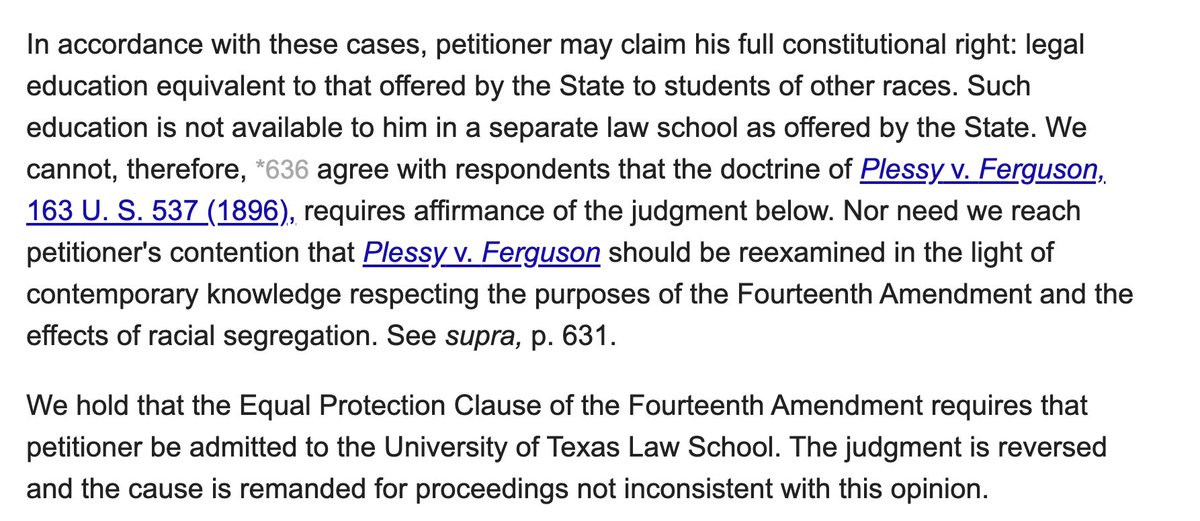
In December 1950, a group of faculty from @YaleLawSch proposed a non-discrimination rule: A school can't be allowed as an AALS member if it discriminates on the basis of race. Desegregate, or the school is booted out of @TheAALS.
www-jstor-org.libproxy.berkeley.edu/stable/2571990…
www-jstor-org.libproxy.berkeley.edu/stable/2571990…
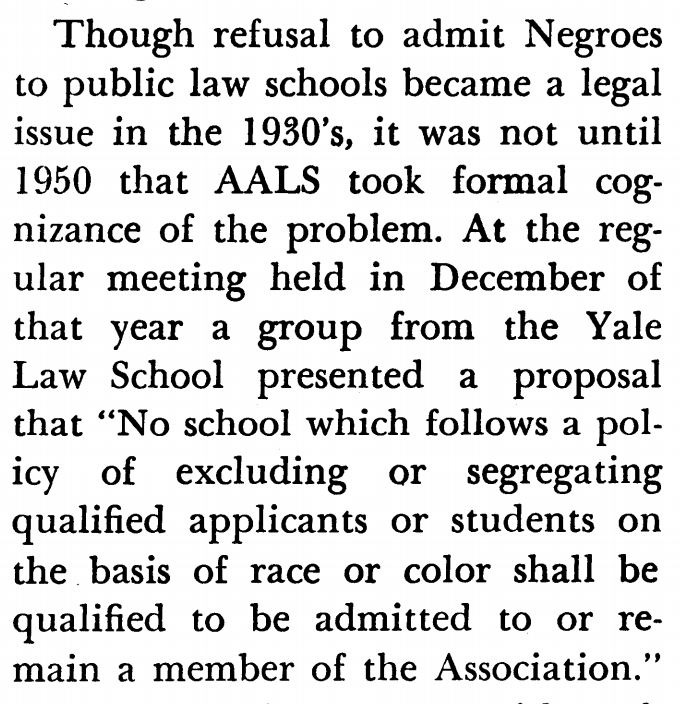
I learned of this because, when I was reading some old Boalt Hall (aka @BerkeleyLaw ) faculty meeting minutes that my friend Kyle Graham sent me, I came across this from Nov 30, 1950. The Berkeley faculty debated the proposal before it was formally proposed at the AALS meeting. 
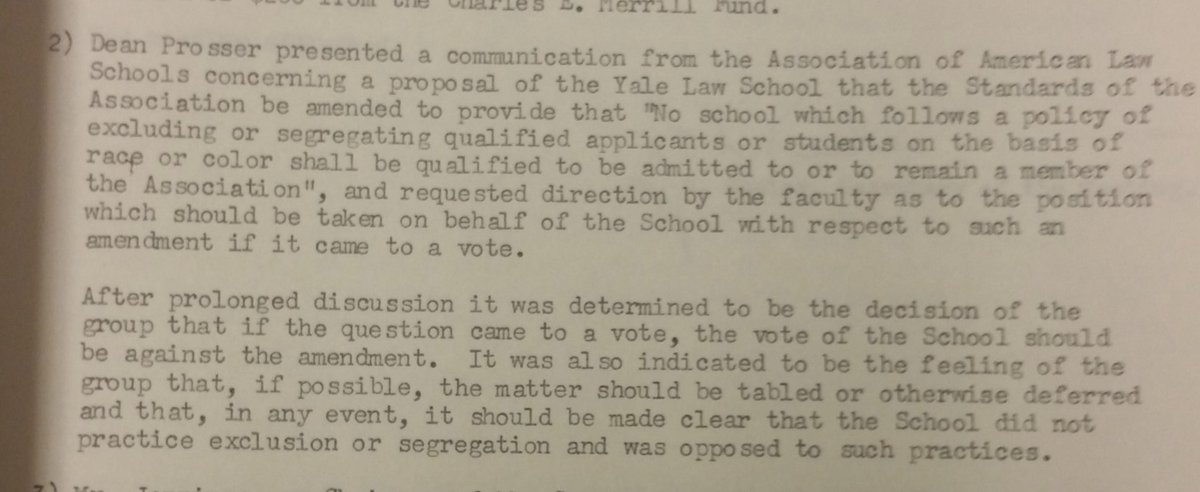
Berkeley Law had long admitted Black students. Walter Gordon had graduated in 1922. en.wikipedia.org/wiki/Walter_A.…
The first woman Black graduate, Annie Coker, had graduated in 1929. news.berkeley.edu/2020/07/20/leg…
Despite this, the faculty still didn't want to support the AALS proposal. Wow.
The first woman Black graduate, Annie Coker, had graduated in 1929. news.berkeley.edu/2020/07/20/leg…
Despite this, the faculty still didn't want to support the AALS proposal. Wow.
What happened with the proposal, you wonder? From what I can tell, the AALS formed a committee to consider it. (A committee!) A year later, it recommended a half-way measure: Don't boot out schools that won't desegregate, but make it an "objective." AALS adopted this in 1951. 

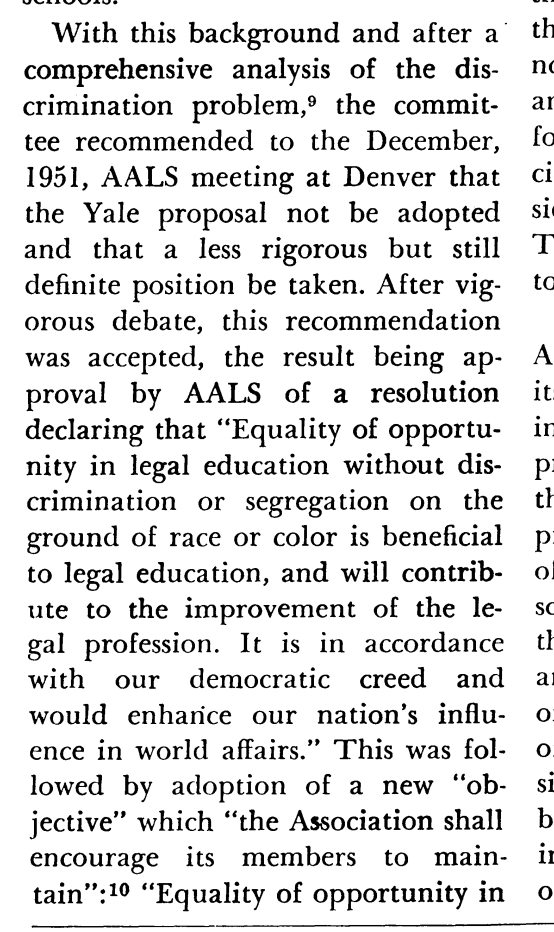

By 1955, 15 of the 108 AALS schools still had not announced compliance with the "objective." This was the year AFTER Brown v. Board, and the AALS again debated making this a requirement of AALS membership. The proposal was again defeated. 

Some schools continued to refuse to admit Black applicants into the 1960s. For example, this article indicates that as late as 1962, the University of Richmond was in violation of the AALS policy.
jstor.org/stable/42893244

jstor.org/stable/42893244
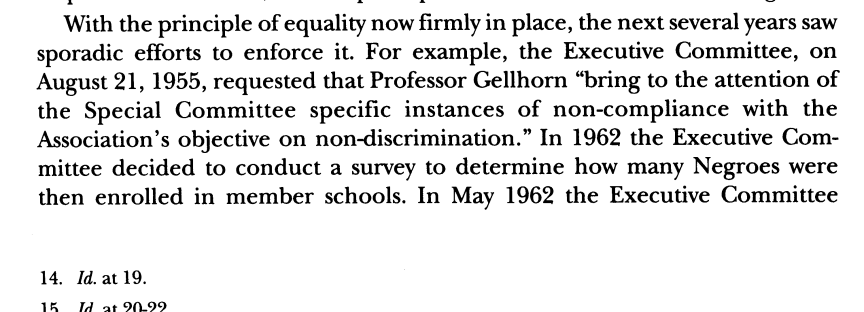

It appears that Richmond didn't repeal its policy until 1964, and no Black law student was enrolled there until 1968.
scholarship.richmond.edu/cgi/viewconten…

scholarship.richmond.edu/cgi/viewconten…


Anyway, I hadn't been aware of this history before, at least in any detail, and I found it illuminating and disturbing. It wasn't all that long ago. /end
• • •
Missing some Tweet in this thread? You can try to
force a refresh




